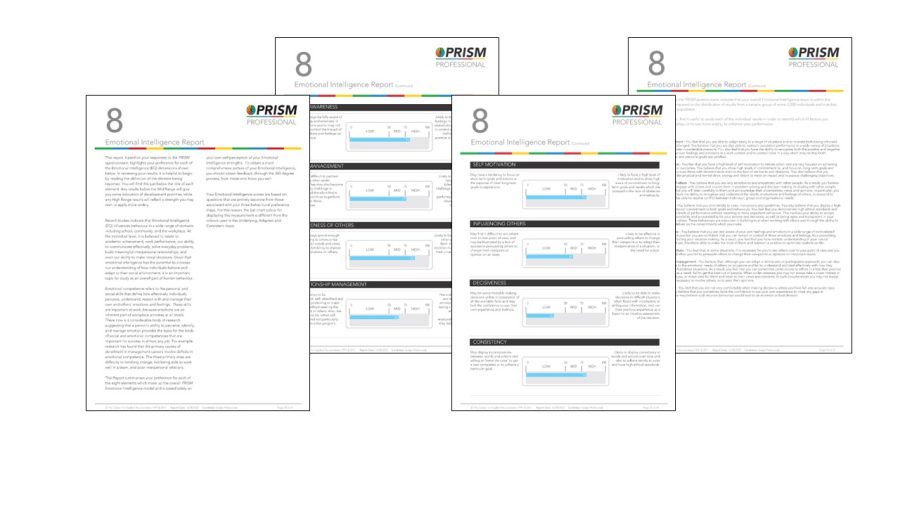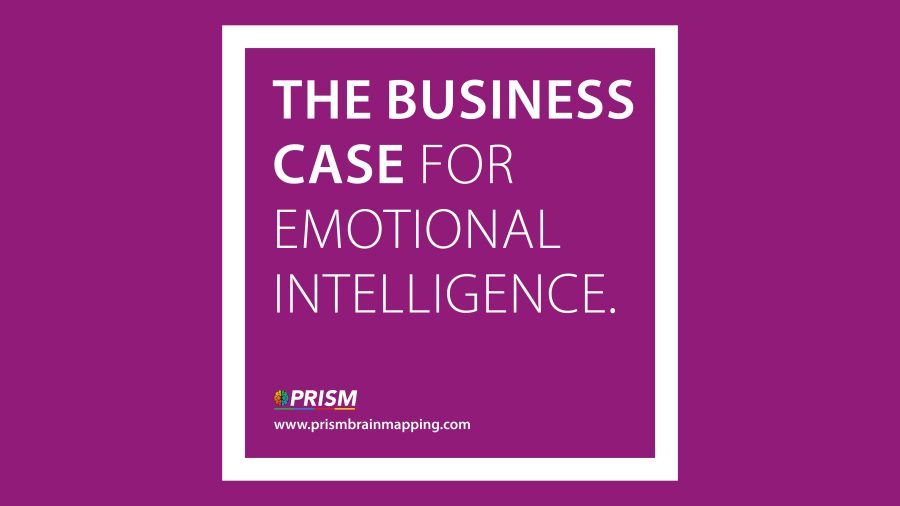In today’s complex world, emotional intelligence in the workplace is no longer just a “nice to have” it’s a fundamental driver of performance, engagement, and business success. Research shows that organisations with emotionally intelligent leaders and teams enjoy measurable benefits, from stronger collaboration and decision making to increased resilience and retention.

In this blog, we explore the return on investment (ROI) of emotional intelligence, why it matters more than ever in a hybrid, AI enabled working world, and how organisations can build a culture that nurtures and rewards emotionally intelligent behaviour at every level.
Why Emotional Intelligence Matters for Business Success
Emotional intelligence (EQ) refers to the ability to recognise, understand, manage, and influence emotions—both your own and those of others. In the workplace, EQ plays a critical role in how people interact, communicate, manage stress, resolve conflict, and lead others.
According to Daniel Goleman, one of the foremost experts on EQ, nearly 90% of the difference between star performers and average ones in senior leadership roles can be attributed to emotional intelligence rather than technical skills or IQ.
Research from Talent Smart also found that 90% of top performers have high EQ, and that people with high emotional intelligence earn on average $29,000 more per year than those with low EQ. In a meta-analysis published in the Journal of Organizational Behaviour, emotional intelligence was significantly associated with job performance across industries and roles (O’Boyle et al., 2011).
From a business perspective, investing in emotional intelligence pays dividends in multiple areas:
- Improved leadership effectiveness
- Higher employee engagement and morale
- Reduced conflict and turnover
- Greater psychological safety
- Better decision making and problem solving
The ROI of Emotionally Intelligent Leaders and Teams
Organisations with emotionally intelligent leaders consistently outperform their peers. A study by the Consortium for Research on Emotional Intelligence in Organizations found that at PepsiCo, division leaders with high EQ delivered 10% more productivity and had 87% less turnover compared to those with lower EQ.
Another study by Korn Ferry revealed that leaders with strong emotional intelligence competencies outperformed annual revenue targets by over 20%, while those with low EQ missed targets by a wide margin.

Why does this happen? Emotionally intelligent leaders:
- Build stronger relationships and cohesive teams
- Inspire and motivate rather than command and control
- Stay calm and make clear decisions under pressure
- Coach others effectively and develop talent
- Create environments of trust and psychological safety
These traits lead to more adaptable, engaged, and resilient teams—key qualities in today’s environment of rapid change and uncertainty.
Building a Culture of Emotional Intelligence
Developing emotional intelligence in the workplace is not about a one-off training session—it requires an organisational culture that values and reinforces emotionally intelligent behaviour from the top down and the bottom up.
Here’s how organisations can foster a culture of emotional intelligence:
1. Start with Leadership Development
Senior leaders set the emotional tone for the entire organisation. Offering executive coaching and leadership development programmes that focus on EQ skills—such as empathy, active listening, and self-awareness—can have a ripple effect across teams. Behavioural profiling tools like PRISM Brain Mapping help leaders gain deeper insight into their behavioural preferences and how they impact others.

2. Embed EQ into Hiring and Promotion
Recruit and promote people not just for technical skills, but also for their interpersonal capabilities. Incorporating behavioural assessments into the hiring process helps identify candidates who demonstrate emotional awareness, adaptability, and social skills—traits that align with high performance in most roles.
3. Invest in Team Development
High performing teams are emotionally intelligent teams. Workshops on communication styles, conflict resolution, and feedback delivery help teams build trust and navigate tension more effectively. Consider tools that measure not just personality, but also observable behaviour and adaptability, which are central to EQ.
4. Model and Reinforce Emotionally Intelligent Behaviour
Make emotional intelligence part of performance conversations and leadership evaluations. Encourage managers to recognise and reward empathetic leadership, collaborative decision-making, and open communication. Psychological safety should be a core value, not an afterthought.
5. Use Behavioural Science to Drive Change
Neuroscience based approaches to behaviour change—like those used in PRISM Brain Mapping—help employees and leaders understand the “why” behind their habits, reactions, and interpersonal dynamics. By leveraging behavioural data, organisations can personalise learning and development pathways that nurture EQ over time.
Emotional Intelligence in the Age of AI and Automation
As AI and automation reshape job roles and team structures, emotional intelligence is emerging as one of the most uniquely human capabilities that cannot be easily replicated by machines.
A 2020 report by the World Economic Forum identified EQ as one of the top 10 skills needed for the future of work. In an age where collaboration, adaptability, and emotional resilience are essential for navigating change, the case for EQ has never been stronger.
Emotionally intelligent teams are better equipped to:
- Respond to change with agility
- Innovate through diverse thinking and mutual respect
- Maintain wellbeing in highstress or uncertain conditions
- Build inclusive, supportive workplace cultures
Conclusion: EQ is Not Soft—It’s Smart Business

The evidence is clear: investing in emotional intelligence in the workplace leads to stronger teams, better leadership, and tangible business results. In a world where technical skills are constantly evolving, emotional intelligence remains a timeless differentiator.
Whether you’re aiming to develop future ready leaders, improve employee wellbeing, or boost retention, building emotional intelligence should be a strategic priority—not an afterthought.
To learn how your organisation can develop emotionally intelligent leaders and teams through neuroscience based tools, visit PRISM Brain Mapping.
Further Reading & References
- Goleman, D. (1998). Working with Emotional Intelligence.
- O’Boyle, E. H., et al. (2011). “The relation between emotional intelligence and job performance: A metaanalysis.” Journal of Organizational Behavior, 32(5), 788–818.
- TalentSmart (https://www.talentsmarteq.com/)
- World Economic Forum (2020). The Future of Jobs Report.
- Consortium for Research on Emotional Intelligence in Organizations (https://www.eiconsortium.org/)
- Korn Ferry (https://www.kornferry.com/)

